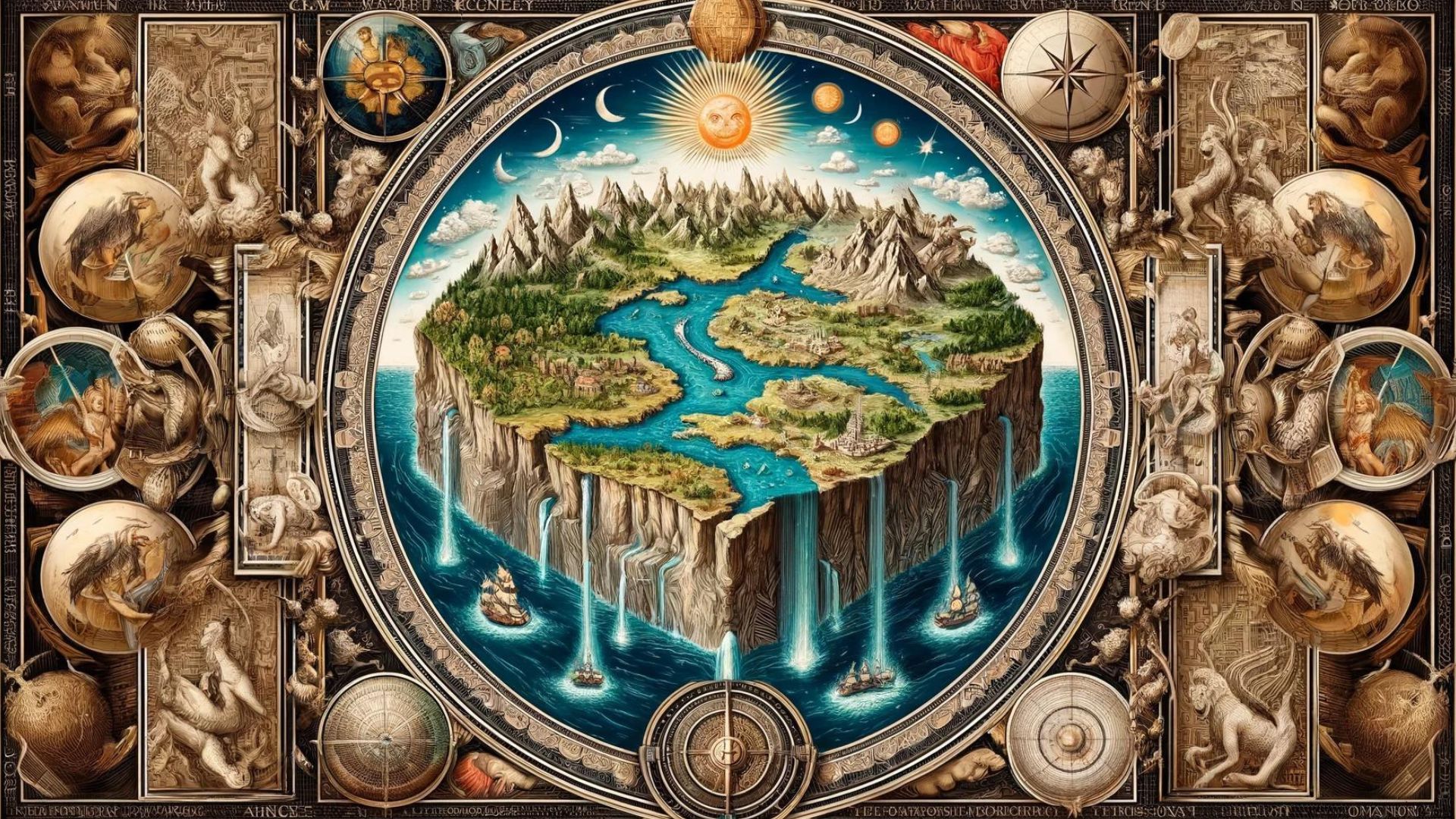- Myth: If the Earth were Round, Ships Would Disappear Over the Horizon
- Myth: Photos from Space are Faked
- Myth: Gravity Can’t Exist on a Globe
- Myth: I Can’t Feel the Earth Spinning
- Why It Matters: Critical Thinking in a Sea of Misinformation
- Real-World Examples
- Take Action
- Why Should You Care?
- Key Takeaways
- Keywords
- Frequently Asked Questions
- Myth Busters
- Let’s Talk
Myth: If the Earth were Round, Ships Would Disappear Over the Horizon
Actually, it’s the way they disappear that proves the curve! Ships vanish hull first, then mast later. If Earth was flat, they’d just get smaller until out of sight. This is simple perspective in action!
Myth: Photos from Space are Faked
We’ve launched countless satellites, probes, even people into orbit, all sending back glorious images of our round planet. Blaming a massive NASA-led conspiracy is way less logical than accepting mountains of evidence.
Myth: Gravity Can’t Exist on a Globe
Flat earthers claim gravity would pull us towards the center of a disk. But gravity pulls towards the center of mass, which for a sphere, is right where we are! Apples fall down, not sideways for a reason.
Myth: I Can’t Feel the Earth Spinning
We don’t feel it because Earth spins at a steady speed, and we’re moving with it, like being on a smooth train ride. But things like the rotation of stars in the night sky and weather patterns are evidence of Earth’s motion.
Why It Matters: Critical Thinking in a Sea of Misinformation
The Flat Earth myth might seem harmless, but it highlights something dangerous: ignoring clear evidence in favor of belief. This damages our ability to:
- Make Informed Decisions: From health choices to voting, we need to assess information critically to make good choices for ourselves and society.
- Combat Dangerous Ideas: Misinformation about science or history can lead to real-world harm if left unchecked.
- Appreciate Science: Every space launch, every weather forecast, is a testament to our understanding of a round Earth and a wider universe.
Real-World Examples
Think about choosing between two products. One’s backed by studies, one by a celebrity endorsement. Whose claims should you trust more? This is critical thinking at work!
Take Action
- Look Before You Leap: Be skeptical of outlandish claims. Ask, “What’s the evidence? Does it line up with established knowledge?”
- Verify Sources: Where’s the information coming from? Reliable sources are more trustworthy than random social media posts.
- Embrace Curiosity: The more you learn about how the world actually works, the easier it is to spot misinformation.
Critical thinking isn’t just about the shape of the Earth. It’s a superpower that helps us navigate an increasingly complex world. Let’s use it wisely!
Why Should You Care?
- Fostering Critical Thinking: The Flat Earth debate is an excellent example of why it’s crucial to question information and not take claims at face value.
- Protecting Yourself from Misinformation: The more critical thinking you develop, the less likely you are to fall prey to misleading or potentially harmful ideas.
- Understanding the Power of Science: Realizing how much evidence supports established science highlights the importance of the scientific method.
Key Takeaways
- Flat Earth theory has easily refutable ‘arguments’: Even a little investigation reveals their flimsy logic.
- Conspiracy theories require more leaps in logic: A vast conspiracy is harder to maintain than readily available scientific facts.
- We have numerous forms of evidence about Earth’s shape: Images from space, navigation, and simple observations support the globe.
- Critical thinking is a life skill: Apply it to everything from news headlines to product claims for better decision-making.
Keywords
- Flat Earth Theory: The belief that the Earth is a flat disk, contrary to overwhelming scientific evidence.
- Critical Thinking: Analyzing information, questioning assumptions, weighing evidence logically to form a reasoned judgment.
- Perspective: How the relative position and distance of objects affects how they appear to an observer.
- Gravity: The force that attracts objects with mass towards each other. On Earth, this explains ‘down.’
- Center of Mass: The average position of the mass within a body, where gravity acts most strongly.
- Satellite: Man-made objects placed in orbit, capable of transmitting images or conducting research.
- NASA: National Aeronautics and Space Administration, the US agency responsible for space exploration and research.
- Misinformation: False or inaccurate information intentionally or accidentally spread.
- Conspiracy Theories: Belief in secret plots by powerful groups, often lacking evidence and defying logic.
- Scientific Method: A systematic approach involving observation, experimentation, and analysis to understand the natural world.
Frequently Asked Questions
- If Earth is round, why doesn’t water fall off the edge? Gravity pulls things towards the center of mass, which means no “edge” to fall off of.
- Are there influential people who believe in Flat Earth? Some celebrities have made statements, but it’s unclear if they genuinely believe it or seek attention.
- Why does the Flat Earth theory persist despite strong evidence? Complex reasons include distrust of authority and seeking belonging within a like-minded community.
Myth Busters
We debunked a few already, but here’s one more:
- Myth: All scientists throughout history believed in a flat Earth.
- Reality: Ancient cultures have known the Earth is a sphere for centuries! Eratosthenes even calculated its circumference remarkably accurately around 200 BC.
Let’s Talk
- Have you ever encountered a claim that made you question its validity? How did you research it?
- Besides the Flat Earth theory, what are some other widely-held misinformation examples?
- How can we engage in conversations with those believing in conspiracy theories respectfully but productively?
Share your thoughts in the comments below!











0 Comments